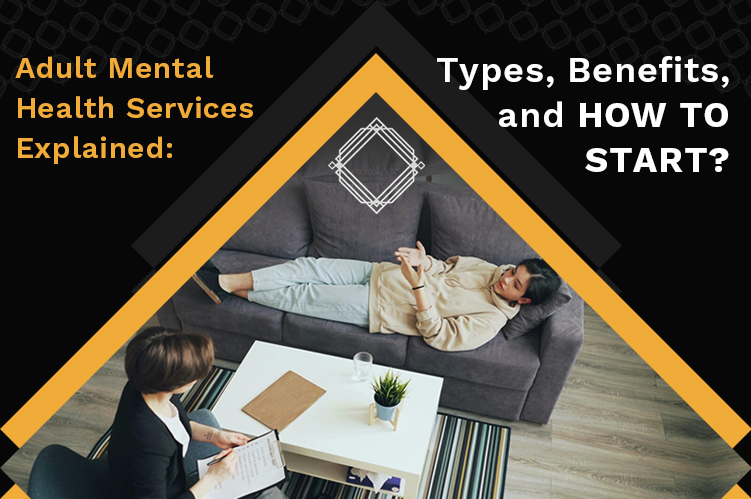

In the past, the term “family” was used to specify people related by adoption, blood, or marriage. Nowadays the definition comprises the lots of close relationships that outline the foundations of your life, whether you share DNA or a legal association. For the reason these relations are so imperative to your mental and physical health, couples and family therapy possibly will be supportive in several situations that affect family dynamics and relationships.
Some examples comprise circumstances where you or somebody you love is dealing with:
- A big life evolution
- A serious sickness
- A mental health problem
- A drug use disorder
- Clash over one or additional problems
- Communication collapse
- Financial problems
- Marital problems
What is family therapy?
Couples and family counseling or Family therapy is a type of treatment that is considered beneficial to address detailed problems affecting the functioning and well-being of a family. It can be utilized to support a family through a hard period, a major changeover, or behavioral or mental health issues in family members. Couples and family Counselling can utilize exercises and techniques from behavior, cognitive, interpersonal, or additional types of individual therapy. Like with additional kinds of treatment, the methods employed will rely on the detailed issues the client or clients are dealing with.
Behavioral or emotional problems in children are also common motives to visit a marriage family therapist. A child’s problems do not subsist in a vacuum; they subsist, and will probably require to be handled, within the family environment. As we discussed earlier, it requires being distinguished that in family therapy or counseling, the term “family” does not essentially indicate blood relations. In this circumstance, “family” is anybody who “plays an enduring supportive role in one’s life, which possibly will not mean blood relations or family members in a similar family circle.
Types of Family Therapy:
According to a Licensed Clinical Social Worker at I Got U Corp, these are the most common types of family therapy:
Bowenian: This type of couples and family Counselling is best suitable for circumstances in which individuals cannot or do not desire to entail additional family members in the process. Bowenian therapy is formulated on two central concepts: differentiation (learning to become less emotionally immediate in family relationships) and triangulation (the natural propensity to vent sorrow by talking to a third party).
Structural: Structural therapy concentrates on fine-tuning and intensification of the family system to make sure that the parents are on top of things and that together adults and children set suitable borders. In this form of therapy, the therapist joins the family with the intention of observing, learning, and enhancing their capability to support the family and reinforce their relations.
Systemic: The Systemic model indicates the form of therapy that concentrates on the insensible communications and implications behind family members’ actions. The marriage family therapist in this type of treatment is distant and neutral, permitting the family members to dive deeper into their problems and troubles as a family.
Strategic: This kind of couples and family counseling is extra concise and direct than the others, in which the therapist allocates homework to the family. This homework is anticipated to change the approach family members interrelate by assessing and regulating the way the family corresponds and makes decisions. The marriage family therapist takes the designation of power in this kind of therapy, which let additional family members who possibly will not generally hold as much supremacy communicate more efficiently.
Key Advantages and Disadvantages of Family Therapy:
Family therapy can be amazingly supportive for all family members if everybody is willing to contribute and monitor their personal actions and reactions to one another. Family Counselling can turn out to be slightly extra demanding when some members won’t contribute, or if there are problems with self-reflection.
Advantages of Family Therapy:
Here are some Key Advantages of Family Therapy:
Strengthening the Family Unit:
One of the supreme advantages of family Counselling is strengthening the family unit. This frequently takes place with consistency and time; when the whole family can sit down with a therapist; this can provide insight into what’s going on, how different relatives are feeling, and the continuation of existing dynamics. The family unit can eventually get stronger via therapy by talking with the Family Therapist, remaining friendly to succeeding feedback, and acting upon any advice.
Family members can understand more about one another:
Throughout family therapy, relatives will unavoidably learn further about one another. This comes along with working with an expert, offering insight about your viewpoints, listening to the outlooks of others, and considering what they have to say when the marriage family therapist asks them some queries.
Lots of confusion and problems can occur when all family members aren’t on a similar page. This is why having a clear understanding of one another and where everybody stands is worth a lot. In lots of belongings, it possibly will take sitting down with a counselor and hearing what each party has to say earlier than relatives can have that get through and actually get to recognize one another. This is an area where couples and family counseling can authentically prove to be beneficial.
Here are some additional advantages of Family therapy:
Enhances family bond: Family therapy can have a powerful impact on general family bonds. It allows family members to see the attempt of one of their own, and recognize what they are suffering.
Family members respect the person: Comparable to the above, family members possibly will not realize what their member is suffering from, and possibly will not be attentive that they are dealing with a mental health problem.
Raises attentiveness: Family therapy is frequently necessary when one member of the family is getting troubled by behavior that is having a depressing effect on the rest of the family members. Family counselling lets the person see the reactions of their actions on the family members.
Results in the happier family: Generally, Family Counselling is capable to refurbish a family’s connection, eradicating any negative ambiance, and making the family have an improved connection.
Practical tools: Family members will discover a lot throughout the therapy. They will learn tools to support them in helping one another in the long standing. This can support guarding against future problems and relapses.
Disadvantages of Family Therapy:
Family therapy can cause problems if one or further members turn down to contribute. Think of it this way- families seek homeostasis (balance), even if it’s harmful. This indicates that every person within the family has a function to play to uphold the structure of the family. When some family members desire to work towards improved patterns, but others don’t, the family formation will start to shift, therefore creating insensible and/or cognizant anxiety as a change within the family structure grow and the old “balance” is thrown off. Some challenges:
Expose you and/or your additional family members to upsetting and excruciating problems that you were formerly uninformed of- can be very extreme, lead to feeling lonely, and emotionally exhausted if you don’t have an encouraging family structure (keep in mind that this possibly will be momentary if your family is willing to attach with therapy). Once couples and family therapy starts, it can be complicated to see family circumstances as you used to and your awareness possibly will be altered- this can lead to a negative outlook, particularly if others within your family are not willing to pursue therapy or are in defiance of harmful family patterns. Family problems can momentarily exaggerate as harmful patterns and behaviors turn out to be extra obvious- in therapy, problems tend to get worse as they are exposed and explored, earlier than they get improved.





